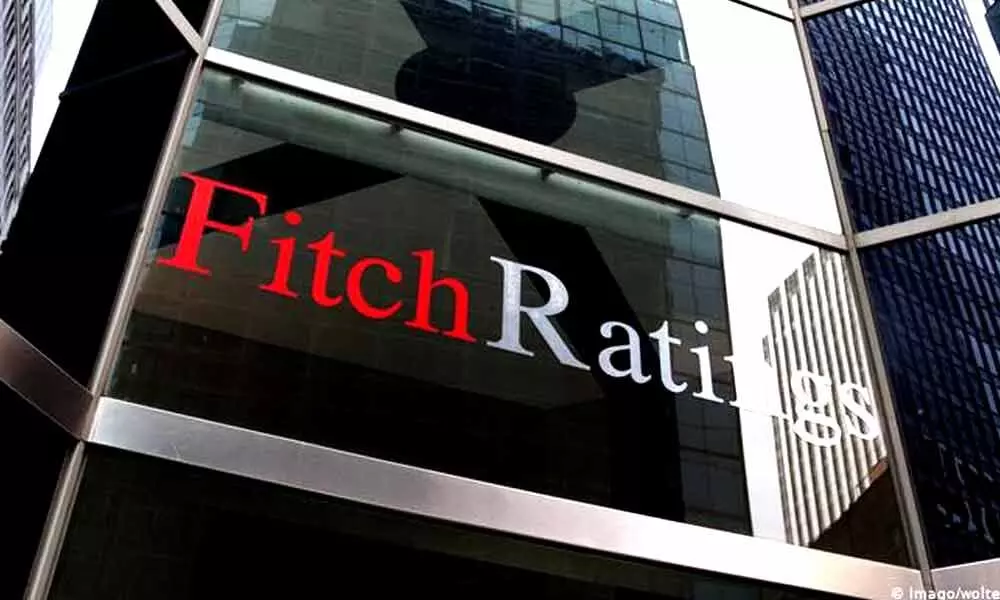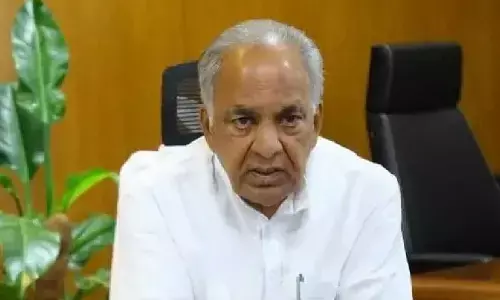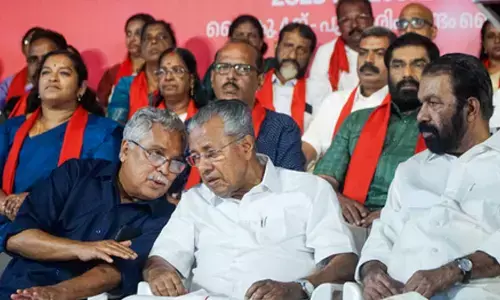Fitch Ratings revises India's outlook to 'negative' from 'stable'
 Fitch Ratings (File Photo | PTI)
Fitch Ratings (File Photo | PTI)The move comes after another rating agency Moody's earlier this month downgraded India's sovereign rating by a notch to lowest investment grade of 'Baa2' for the first time in 22 years.
New Delhi: Fitch Ratings on Thursday revised India's outlook to 'negative' from 'stable', stating that the coronavirus pandemic has significantly weakened the country's growth prospects for the year and exposed the challenges associated with a high public-debt burden.
The move comes after another rating agency Moody's earlier this month downgraded India's sovereign rating by a notch to lowest investment grade of 'Baa2' for the first time in 22 years.
"Fitch Ratings has revised the outlook on India's long-term foreign-currency issuer default rating (IDR) to negative from stable and affirmed the rating at 'BBB-'," the agency said in a statement.
Fitch expected economic activity to contract by 5 per cent in the fiscal year ending March 2021 (FY21) due to the strict lockdown measures imposed since March 25, before rebounding by 9.5 per cent in FY22.
"The coronavirus pandemic has significantly weakened India's growth outlook for this year and exposed the challenges associated with a high public-debt burden. The rebound will mainly be driven by a low-base effect," it said.
Fitch said its forecasts are subject to considerable risks due to the continued acceleration in the number of new COVID-19 cases as the lockdown is eased gradually.
"It remains to be seen whether India can return to sustained growth rates of 6 per cent to 7 per cent as we previously estimated, depending on the lasting impact of the pandemic, particularly in the financial sector," it said.
Separately, Moody's Investors Service forecast India's gross domestic product (GDP) to contract by 4 per cent in FY21 followed by 8.7 per cent growth in FY2022.
"We expect the coronavirus lockdown and social distancing measures will weigh on domestic demand and economic activity. In addition, severe liquidity constraints in the bank and non-bank financial sectors continue to hamper credit flow to the economy," Moody's said.
Moody's rates India at Baa2 with a negative outlook. Fitch said the humanitarian and health needs have been pressing, but the government has shown expenditure restraint so far due to the already high public-debt burden going into the crisis, with additional relief spending representing only about 1 per cent of GDP.
"Most elements of an announced package totalling 10 per cent of GDP are non-fiscal in nature," it said.
Some further fiscal spending of up to 1 percentage point of GDP may still be announced in the next few months, which was indicated by a recent announcement of additional borrowing for FY21 of 2 per cent of GDP, although we do not expect a steep rise in spending, it added.
India's fiscal metrics, it said, has deteriorated significantly, notwithstanding the government's expenditure restraint, due to the impact of the severe growth slowdown on revenue, the fiscal deficit and public-sector debt ratios.
Fitch expects general government debt to jump to 84.5 per cent of GDP in FY21 from an estimated 71 per cent of GDP in FY20.
"India's medium-term GDP growth outlook may be negatively affected by renewed asset-quality challenges in banks and liquidity issues in non-banking financial companies (NBFC).
"The financial sector was already facing weak business and consumer confidence before the crisis and authorities had to deal with some high-profile cases over lapses in governance," it said.
A renewed rise in non-performing loans (NPLs) and the need for further financial government support now seem inevitable despite regulatory measures announced by the Reserve Bank of India (RBI).
These measures include an extension of the 90-day moratorium on recognition of impaired loans to 180 days and several relaxations in bank lending limits such as allowing banks to fund interest on working-capital loans.
"These moves will put a heavy onus particularly on public-sector banks to bail out the affected sectors and extend impaired-loan recognition, heightening solvency risks if not met by adequate and timely capital support," it said.










